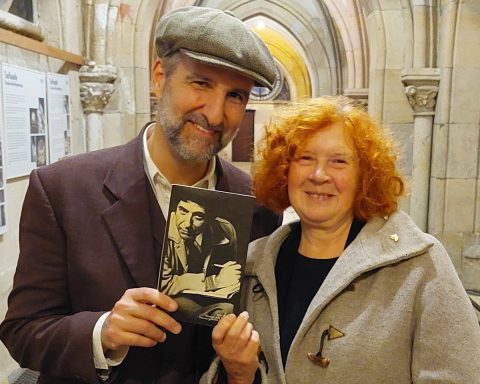That time of year has come around again when Germans prepare for “Karneval” season, otherwise known as “Fastnacht” or “Fasching”, depending on what region you find yourself in.
Not necessarily interchangeable, all versions are varying forms of Lenten festivals, whereby hundreds of excitable locals storm cities and towns around the country, dressed in vibrant costumes, and party like crazy for six days straight.
“Grand, no problem!”, says the Irish tourist.
I experienced my first Karneval back in 2015 as an exchange student in Baden Württemberg, studying in a charming little university city called Konstanz. Here, they refer to the celebrations as “Fastnacht.”
Fastnacht is the Swabian-Alemannic version of Karneval found in southern Germany, northern Bavaria, western Austria, and much of Switzerland. Catholic in origin, the historic purpose of Karneval was to let loose before 40 days of gustatory sacrifice during Lent. All Karneval celebrations, no matter in what region, come to an end on Shrove Tuesday, with the beginning of Lent.

By this time, Germans should have some of their worst habits out of their systems and part with what it is they feel is necessary for the Lenten period.
Farewell for now, my beloved Kinder Schokolade!!
The atmosphere is nothing other than spectacular. Never could I have predicted the craziness that was to accompany what they refer to as the “fifth season” in the German calendar. Typically awoken at 06:00 (yes, that is 6AM!) by noisy whistles, trumpets and what they call “Good Friday rattles,” the townspeople habitually put on their colourful costumes and wooden masks and make their way to the city centre to ring in the beginning of the Easter holidays.
The sense of togetherness and community is truly inspiring, quite reminiscent of Ireland on our beloved St. Patrick’s Day. The quirky “Guggemusik” sends an air of happiness through the narrow lanes, and everyone – old, young and infant – dances together to the infectious drumbeat of the enthusiastic marching bands.

Political and social parody is also expressed by means of a street parade with elaborate floats. I had the pleasure of watching the pretty cobbled streets of Romanesque Konstanz become conquered by clowns, fools, monsters, devils, wild beasts, and every fruit and vegetable imaginable.
And what did I, the naïve Irish student, dress as? No, not a lucky little leprechaun as one might expect, but a LEMON. Now you understand the juicy pun in the title!
My fellow international friends and I were made to feel very welcome when we turned on to a pretty little side-street invaded by a group of Swiss witches. Living up to their respective sisterhood, they performed rituals and fed fish, garlic, and eyeball soup to wide-eyed onlookers.
The witches kindly informed us of how each Karneval celebration has its very own “fools shout”, ours being “Ho Narro!” whenever we raised our glasses. Needless to say, this new phrase was to become the soundtrack to our next six days.
I really can’t stress how exciting this typisch deutsches Fest was for me. What struck me the most was the absolute hilarity of it all. Everyone looked ridiculous, and such a strikingly beautiful, historic town was turned topsy-turvy for six days straight. The more ridiculous you looked and danced, the better. Pure nonsense! I love Germany.
If you haven’t yet experienced Karneval, I would recommend putting it at the top of your bucket list.
To wrap it up, I think it’s apt to borrow the words of the infamous Cheshire Cat from Lewis Carroll’s Alice In Wonderland:
“We’re all mad here!”
By Kaleigh Ahern
Driven by an insatiable thirst for languages, 23-year-old Irish expat Kaleigh Ahern moved from her beloved County Cork to Leipzig in September 2017 to realise her dream of teaching English. Working in three local schools as a language educator assistant, her days are spent interacting with the lively youth of Leipzig, inserting commas, reciting phrasal verbs, and explaining the drastic linguistic consequences that accompany false friends. Her immigrant story tells of awkward cross-cultural situations, hard-hitting Heimweh and hilarious adventures around the globe with some colourful eccentrics picked up along the way.








![Wine & Paint event on 9 Nov. 2024 at Felix Restaurant, Leipzig. Photo: Florian Reime (@reime.visuals] / Wine & Paint Leipzig](https://leipglo.com/wp-content/uploads/2024/12/pixelcut-export-e1733056018933-480x384.jpeg)

